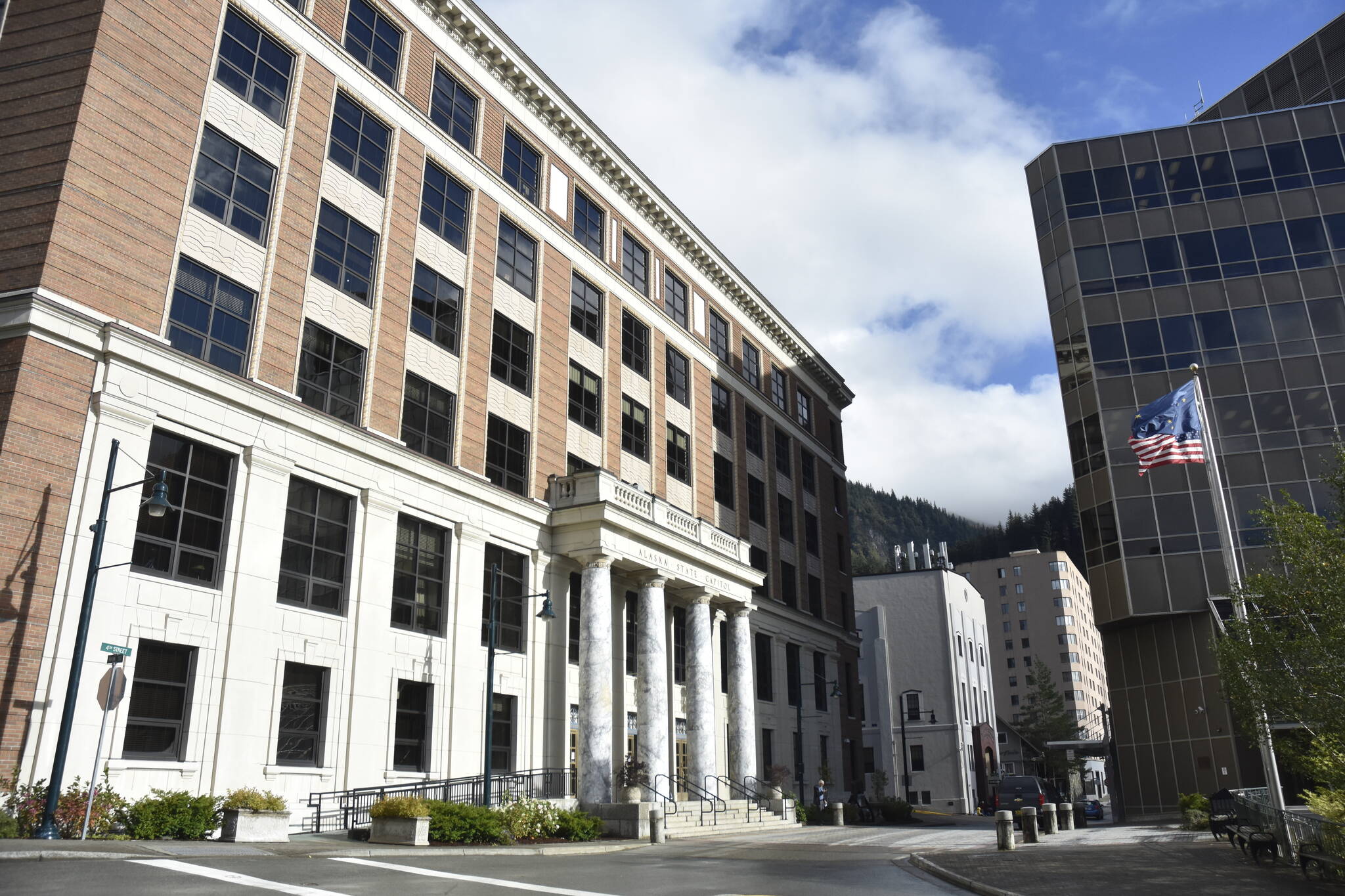The second week of the Alaska State Legislature’s fourth special session of the year saw some committee work begin in the House of Representatives while the Senate remained quiet.
Meetings of the House Judiciary, Ways and Means and State Affairs committees were held through the week, hearing bills aimed at resolving the state’s long-term fiscal crisis.
The first week of the special session saw only brief organizational meetings. House members were able to pass a resolution extending the amount of time required between floor sessions and allowing them to hold committee meetings remotely. The Senate has not yet passed a similar resolution.
Several lawmakers have said they don’t expect much legislation to be passed during this session, but bills could be worked on and taken up again in the next session. Over the summer a fiscal policy working group met and drafted a set of broad recommendations but no actual proposals. House committees heard bills this week offering various elements of the working group’s recommendations.
Part of the working group’s recommendations included an additional $500-775 million in new revenues and between $20-200 million in additional cuts to the state budget. The working group made no recommendations as to where revenues or cuts might come from.
On Friday, the House Judiciary Committee heard a presentation from Rep. James Kaufman, R-Anchorage, on an appropriations limit. Kaufman and Rep. Sara Rasmussen, R-Anchorage, are co-sponsors on two bills for a spending cap, one of which is a constitutional amendment.
Revising the state’s spending limits is mentioned in the report, but a set appropriations limit is not mentioned. The Legislature limited itself to a 5% of market value draw to the earnings of the Alaska Permanent Fund in 2018. The working group said lawmakers will likely need to exceed that limit at least once to put the state on stable fiscal footing but several lawmakers have said they won’t overdraw the fund until there’s a stable fiscal plan in place.
Several bills heard this week offered various formulas for calculating the Permanent Fund Dividend, most of which involve splitting the POMV draw between spending on state services. Gov. Mike Dunleavy has advocated for a 50-50 split, which several Republican lawmakers have endorsed. A few Democratic lawmakers support a 50-50 split as well. Rep. Liz Snyder, D-Anchorage, submitted a bill for a 50-50 split that was heard Wednesday before the House Ways and Means Committee.
Sen. Jesse Kiehl, D-Juneau, also has a bill that would split the POMV draw 50-50 but only after an incremental increase over several years.
The Alaska State Senate held only informal technical sessions this week following the announcement Tuesday two members of the Senate Majority Caucus tested positive for COVID-19 and a third was feeling ill.
No meetings are yet scheduled for next week.
• Contact reporter Peter Segall at psegall@juneauempire.com. Follow him on Twitter at @SegallJnuEmpire.

